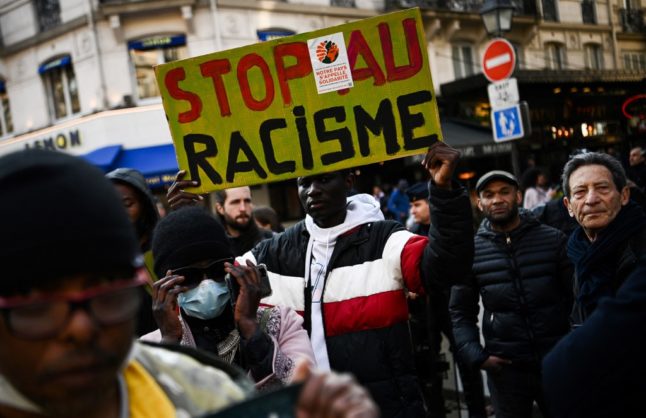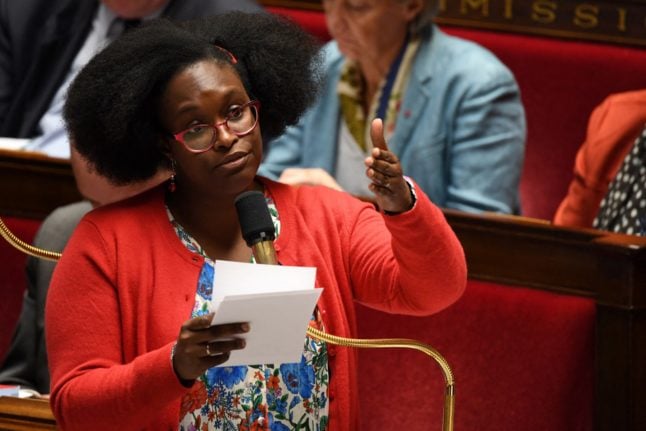In a recent study conducted by INSEE and CRAN (The National Council Representing Black Associations in France) – the results of which will be presented before France’s parliament on Wednesday – has found that the vast majority of Black French people have been victims of racial discrimination.
It comes just a few weeks after France’s Prime Minister, Elisabeth Borne, unveiled a broad-reaching four year anti-racism action plan, which would include more school visits to memorial sites related to colonialism and the Holocaust, as well as harsher penalties for those found guilty of racist or anti-Semitic offences.
Some groups, such as Human Rights Watch have criticised the plan, however, for failing to account for institutional racism and ethnic profiling by police.
READ MORE: French PM unveils four year plan to counter racism and anti-semitism
The results of the study
The study found that 91 percent of Black or mixed race people living in metropolitan reported being victims of racial discrimination “often” or “from time to time” in their every day lives.
The study is the second to have been published by CRAN – the first was put forward 16 years ago, and according to CRAN’s leader, Patrick Lozès, the results show that discrimination is widespread in France.
In an interview with Le Parisien, Lozès commented on the results, saying that “today, there is a free flow of racist speech and an increase in extremist ideas. With this study, we wanted to try to measure these phenomenons. And the results found that they are widespread”.
READ MORE: ANALYSIS: Is France really ‘colour-blind’ or just blind to racism?
The study looked at discrimination in different areas of life. It found that most incidents of anti-Black racism occur in the public space. Almost half (41 percent) happened on the street, about a third occurred in the workplace (31 percent) and about a fifth (18 percent) happened in train stations, airports, or at border crossings.
14 percent of respondents also reported experiencing racial discrimination either at school or university, as well.
“These are the places where people go about their daily lives,” Lozès told Le Parisien.
When looking at the nature of instances of discrimination that Black and mixed-race people living in France reported being victim to, over half were related to difficulty in hiring or applying to jobs (53 percent).
Over one in two respondents also reported experiencing “injustices” during their studies, and almost six in 10 said that discrimination often involved a “disdainful, contemptuous or disrespectful attitude”.
35 percent of respondents reported that racial discrimination had come in the form of physical violence, and almost half (49 percent) reported experiencing racially charged profiling by police (in the form of ‘identity checks’ or contrôles d’identité).
Objectives that CRAN will present to parliament
During the presentation of the study and its results to France’s parliament on Wednesday, Cozès told Le Parisien he hopes to also push for the creation of an observatory body to keep track of racism in France, which would have the means to more regularly publish data on the phenomenon.
CRAN also hopes to debate the subject of publishing ethnic statistics, which is currently banned in France.



 Please whitelist us to continue reading.
Please whitelist us to continue reading.
You don’t even have to be black or have an obviously different skin colour to experience racism in France. It is the first country I have lived in (out of four) where some people are visibly offended that non-French people exist…very strange and insular mindset.